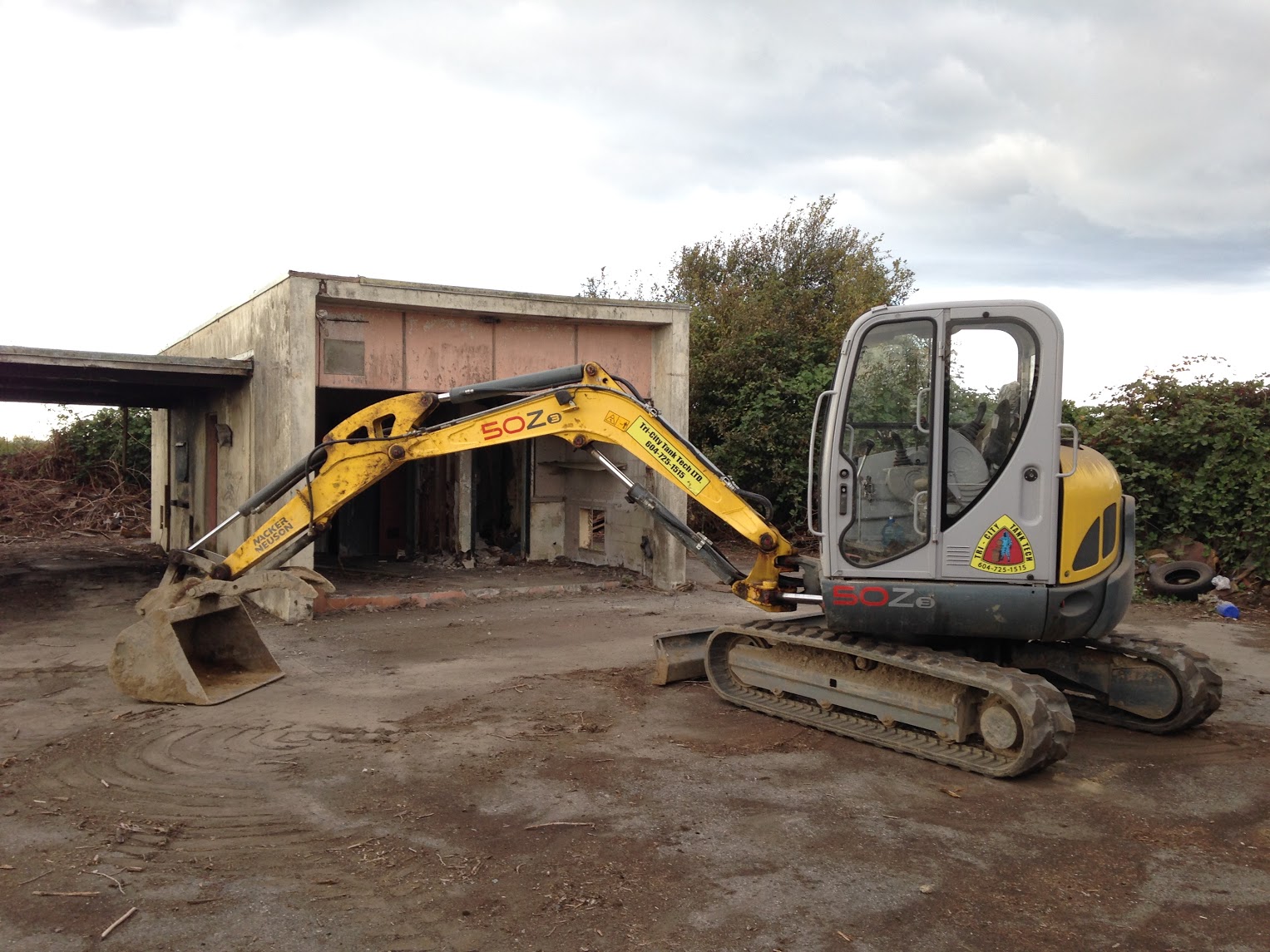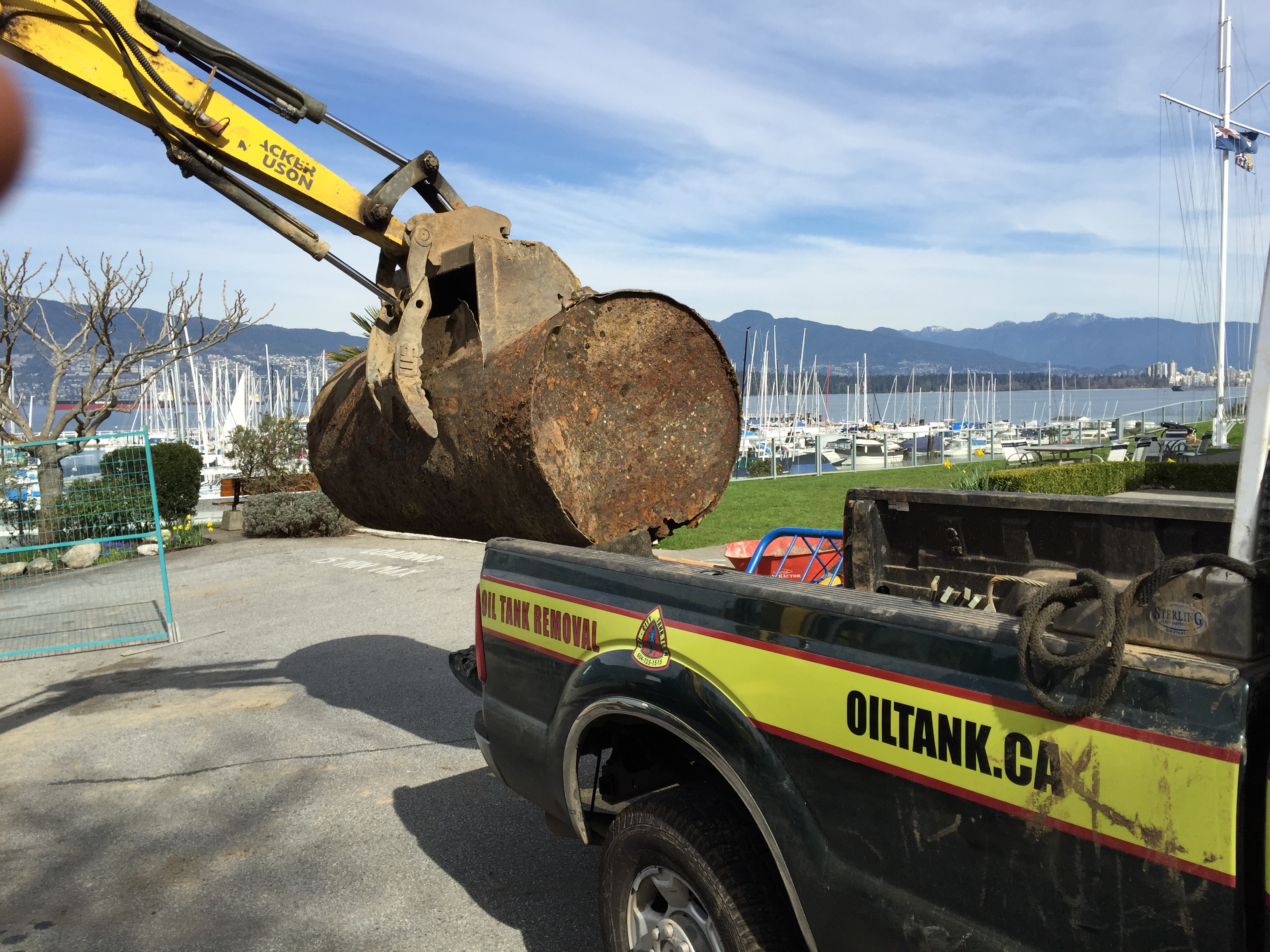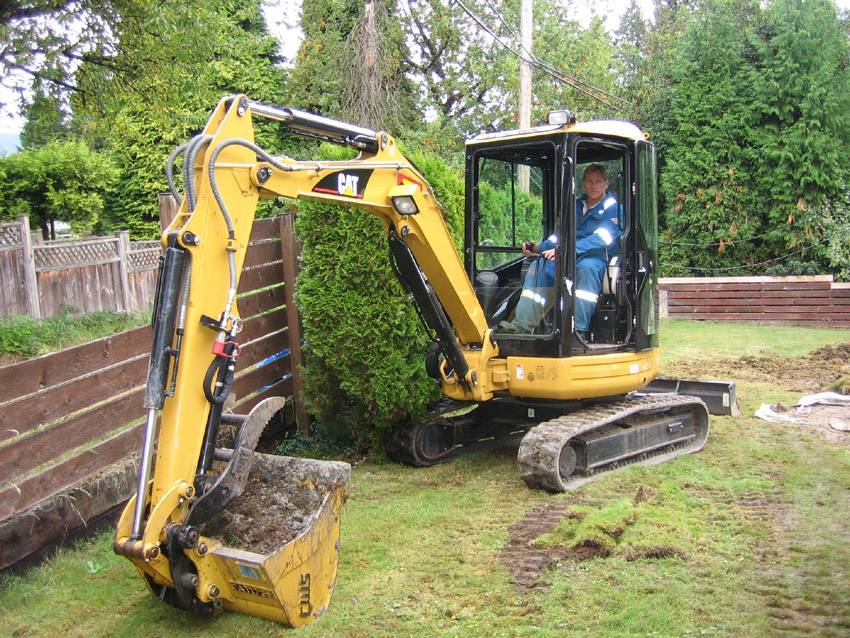View the Image Galleries
Over the years we have seen it all…. from massive to tiny tanks,unobstructed tanks to oil tanks under clients living room floors. Please go through our gallery to see various situations and scenarios. There are many examples of different oil tank pipage that may help you determine if the pipes on your property are oil tank related.

Filler Pipes
Filler pipes are typically approx 6-8 feet from the original building structure, are on average 2 ¾ inches in diameter and are meant to have a screw on cap for access.

Vent Pipes
This pipe was used to vent excess fumes from the interior of the tank, to help prevent the risk of explosion.

Feeder Lines
These pipes feed the oil into the oil burner from the tank.

Emergency oil burner shut off switch
This would be an outlet box that would be located in your basement, usually near the furnace.

Testing Tanks
With certain tanks, its important for the safety of the crew, the clients and the surroundings, to test the inner explosive limits of an Underground Storage tank before cutting into it. .

Inside of an Oil Tank
Some tanks will have “tide lines” displaying where the organic organisms floated and corroded the tank.

Abandoned/Decommissioned Oil Tanks
Whether we need to remove a previously abandoned tank or decommission one ourselves, most times these can be some of the most unique scenarios that we come across as they are usually in an odd location and/or difficult to access

Oil tank removal – with a shovel
Usually if we are removing an oil tank by hand excavation it is due to lack of access.

Oil tank removal – with an excavator
Most times we are removing a standard oil tank our mini rubber tracked Kubota is the star of the show.

Residential Underground Storage Tanks
From big to small, we’ve removed them all. Here are just some of the oil tanks we have removed in the past.

Aboveground Storage Tank removal
Usually above ground tank removals are quite simple, but on occasion we will find some quite unusually located, or inaccessible tanks.

Commercial Tanks removal
From gas stations to dry cleaning storage tanks, to hi rises and apartment buildings, we have the tools, knowledge and the experience that is necessary to get the job done in an professional, organized, efficient, and effective manner.

Scrapyard
All professional tank companies are required to bring removed underground storage tanks to a recycling facility that will properly dispose of them eg. turn them into re-bar.

Before and After
We take pride in our workmanship. From the moment we arrive on scene to the moment we drive away, it is important that things are done as clean, and as effectively as possible.

Searches
Oil tank searches help clients find out if they have an oil tank on there property. Along with industry experience and expertise, we utilize top of the line magnetic locators to assess your property.

Exploratory Excavations
Some times all of the best equipment is still not as effective as the shovel. When high priced equipment cannot be certain its time to go in manually. Most times its a tank but occasionally you can find scrap metals, debris or even car engines.

Pumping
It is important that the contents of the oil tank is disposed of properly, and a vacuum truck that is licensed to haul the product to a registered recycling facility.

Sampling
This is probably the most important part of the tank removal. Usually done by an environmental consultant, it is important to know what, when, how, and where to sample.

Contamination
The 2 most common characteristics of suspect contamination in the field are hydrocarbon odor and a blue discoloration.

Bio Remediation
Bio remediation is one form of management that is introduced under certain circumstances, eg. Structural issues.
